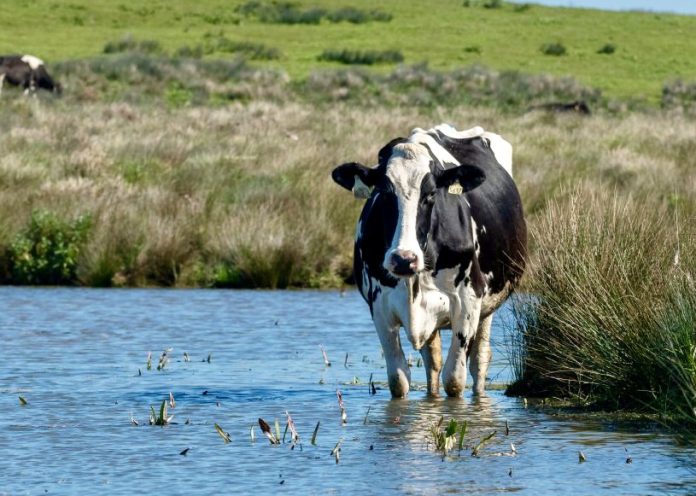Photos by Sarah Killingsworth
The most rigorous independent water quality report ever conducted in Point Reyes National Seashore was recently released by Turtle Island Restoration Network. The report reveals that water pollution dangerous to public health and the environment persists at the Seashore. Produced by Geoenvironmental Engineer Douglas Lovell, the report documents consistent and significant water quality pollution in this National Park unit caused by subsidized private ranching.
The report comes before the California Coastal Commission is set to vote on whether to approve a water-quality strategy prepared by the National Parks Service to address chronic water pollution caused by private ranching in the only National Seashore on the West Coast. The Commission unanimously rejected a previous draft this spring.
On September 8th, the Coastal Commission will review the Park Service’s second attempt at a water quality strategy, which could have massive ramifications for the future of the Seashore.
Point Reyes is one of a dwindling handful of national parks that allows cattle ranching. Ranchers lease 28,000 acres, more than one-third of the National Park Service’s land at Point Reyes, where they graze 5,000 cattle for the meat and dairy industry. The National Seashore is an hour’s drive from the San Francisco Bay area and received some 2.5 million visitors last year.
“The degree of pollution is astounding, especially considering it is occurring on the California coast and in a National Park,” Scott Webb, Advocacy and Policy Director with the Marin-based Turtle Island Restoration Network, said in a statement. “I don’t care if it’s commercial agriculture or natural gas development, we need to stand up to private industry that continues to profit off destroying public land, hard stop.”
Lovell’s 2022 report is the first independent report that studied all the dairies with a large enough sample size to meet current state protocols for testing. It revealed eight popular destinations in the Drakes Bay, Drakes Estero, Kehoe, and Abbotts watersheds that contained bacteria concentrations exceeding state standards. Some bacteria concentrations were more than 170 times the health-based standards for Fecal Coliform.
The study revealed that wading, swimming, kayaking, and other forms of water recreation in Kehoe Lagoon and Drakes Estero is an unacceptable health risk, as well as shellfish harvesting in Drakes Estero. The study identified discharge of cattle manure as the cause of the pollution.
“This water quality data should concern everyone who knows and loves Point Reyes,” stated Chance Cutrano, Director of Programs at the Marin-based Resource Renewal Institute. “Environmental and regulatory issues keep mounting at Point Reyes National Seashore, and this report reinforces the growing consensus that the beef and dairy ranching in the National Park is unsustainable.”
The report is the latest new information revealing the depth of substantial water pollution occurring in the National Seashore:
-
A Heal the Bay Report published in June of this year gave an “F” grade to numerous beaches on the seashore due to poor water quality.
-
Inspections by Marin County Environmental Health Services at two private dairy ranches found raw sewage being dumped in the National Seashore and pooling beneath ranch worker housing. Further inspections by Marin County Environmental Health Services discovered that septic systems were out of compliance, or nonexistent, at seven of the 16 ranches inspected.
-
This July, the San Francisco Regional Water Quality Board released their 2022 Confined Animal Inspection Reports, which identified the need for immediate corrective actions in four of the six dairies operating in the Seashore.



